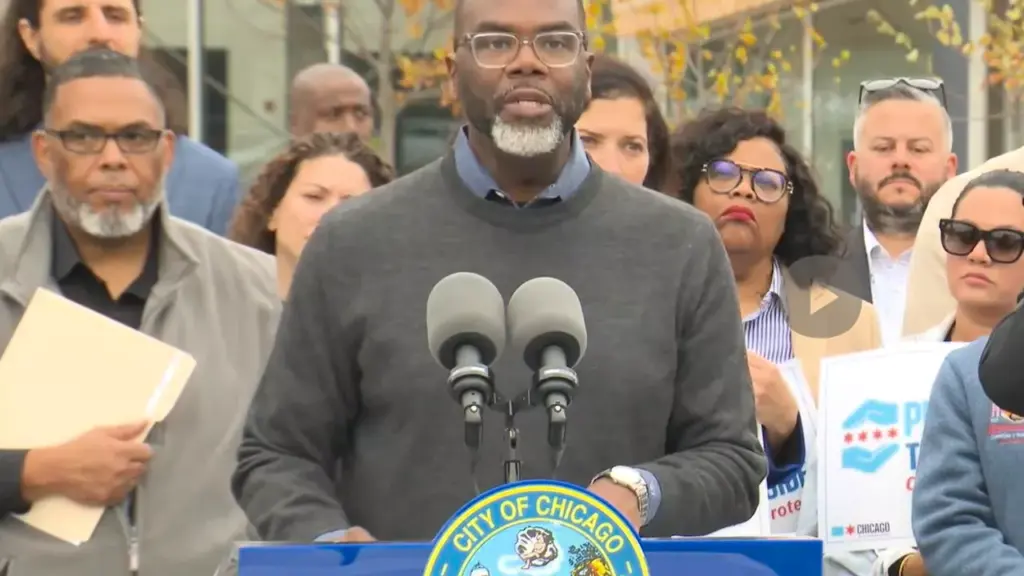
Chicago Mayor Brandon Johnson has signed an executive order to mobilize city resources aimed at combating food insecurity exacerbated by a recent government shutdown and changes to the Supplemental Nutrition Assistance Program (SNAP). This initiative, announced on Saturday, seeks to provide additional support to local organizations, food pantries, and faith-based institutions that assist individuals and families struggling to access enough food.
The decision comes as the Illinois Department of Human Services (IDHS) confirmed that full SNAP benefits will be restored following the 43-day federal government shutdown. Recipients can expect to receive their complete November benefits by November 20, 2023. However, significant changes to SNAP eligibility requirements will take effect on December 1, 2023, mandating that individuals aged 18 to 64 work or volunteer at least 80 hours per month to maintain their benefits.
Under the new regulations, exceptions will apply to certain groups, including veterans, individuals experiencing homelessness, and young adults who have aged out of the foster care system. Notably, the new law, passed on July 4, 2023, also introduces stricter eligibility criteria for non-citizens and excludes immigrants with humanitarian protections, such as refugees and asylees.
In response to the impending “benefits cliff,” Mayor Johnson emphasized the importance of addressing food insecurity in Chicago. “We cannot accept Chicagoans going hungry as a result of the Trump administration’s war on poor and working people,” he stated. Johnson highlighted the dual challenges posed by the recent SNAP changes and the longer-term implications of reduced funding.
The mayor’s executive order will also extend support to independently owned retailers and restaurants affected by decreased SNAP purchasing power and reduced foot traffic linked to heightened immigration enforcement. Johnson noted, “They’re being hit by the one-two punch of reduced SNAP purchasing power, fear-driven drops in foot traffic, and rising requests for free and donated goods.”
To further evaluate and respond to the city’s needs, the mayor’s office, in collaboration with the Department of Public Health and the Department of Family & Support Services, will prepare a weekly status report. This report will outline the impacts of the policy changes, ongoing response efforts, and identify urgent needs in the community.
As the city prepares for these changes, local organizations are bracing for increased demand for food assistance. The executive order aims to bridge funding gaps created by the upcoming adjustments to SNAP eligibility and ensure that essential resources reach those in need.
For more information regarding SNAP benefits and changes, residents are encouraged to visit the IDHS website at dhs.state.il.us.
Chicago’s efforts to combat food insecurity reflect a broader trend across the United States as states work to adapt to federal policy changes impacting vulnerable populations.






